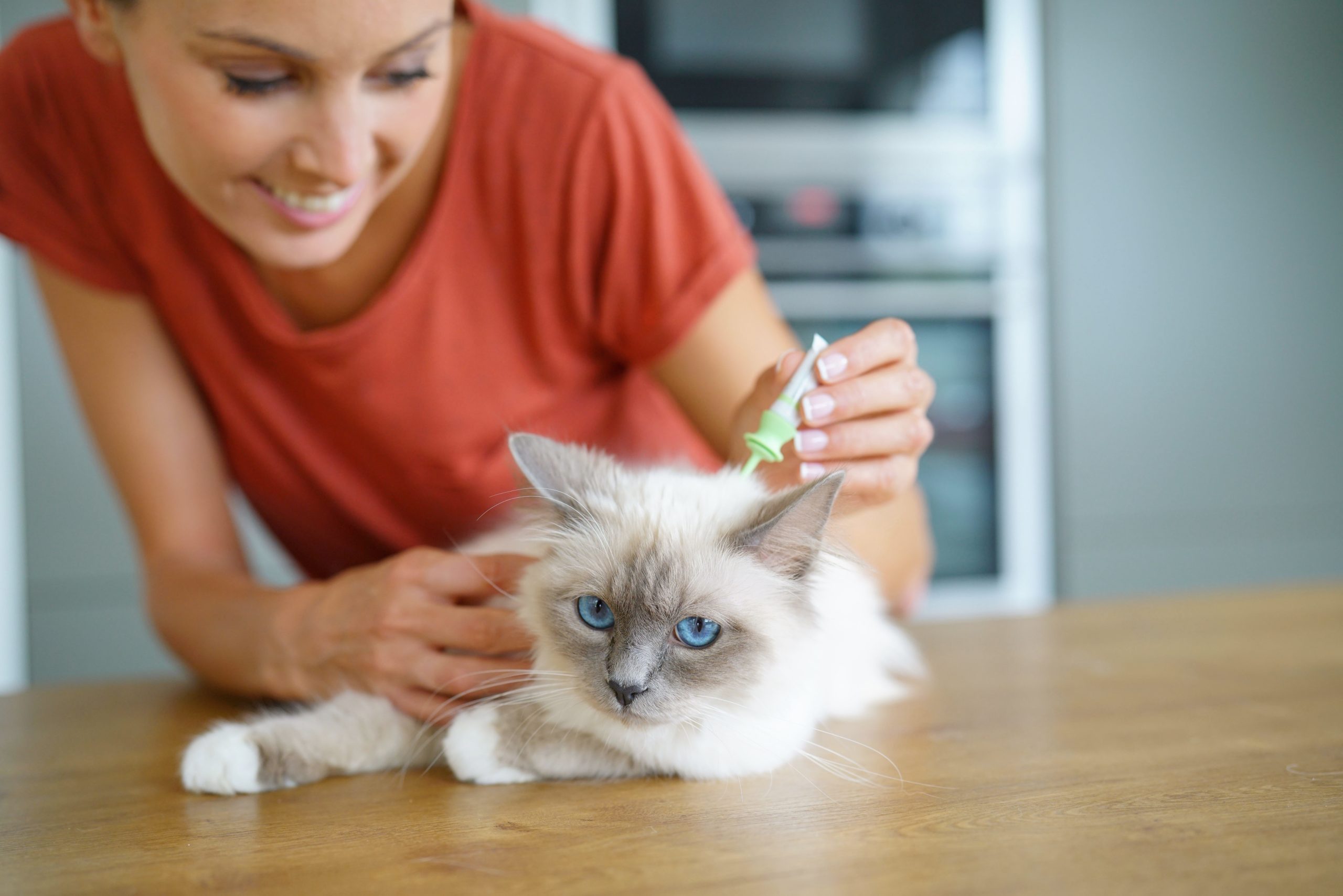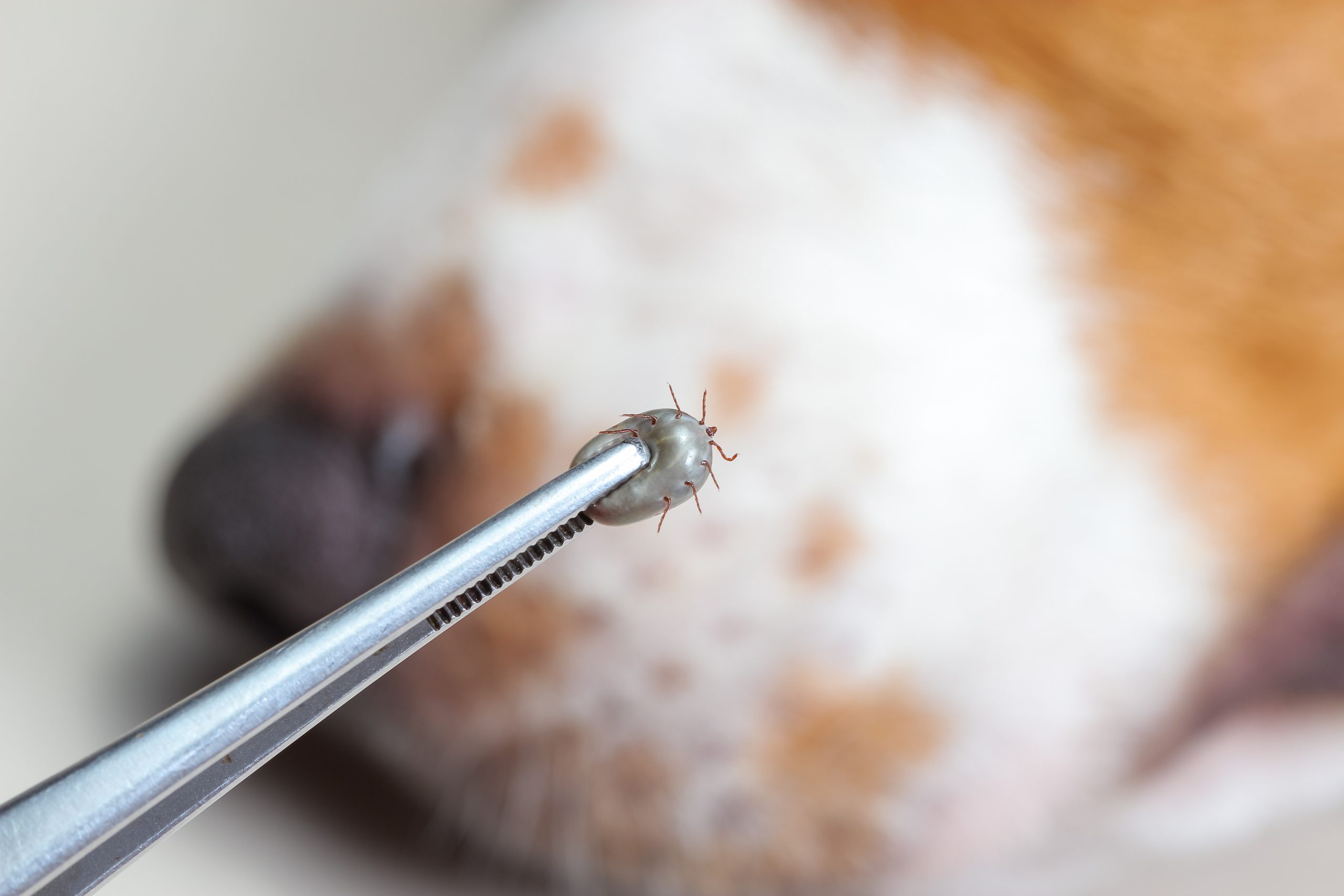The same pests that drive you crazy while you try to enjoy the outdoors can also negatively impact your pet. Fleas and ticks are common on pets, but many free-living insects, such as mosquitoes, flies, ants, or spiders, can also bite your pet and cause problems. The Wellness Animal Hospital team shares bug bite prevention and treatment.
Fleas and flea allergy dermatitis in pets
Fleas are the leading cause of itchy skin in pets, because they thrive on pets, and in homes and the environment year-round. They are small, winged insects that do not fly, but can jump great distances to infest your pet. One flea leads to many, because they reproduce quickly and leave eggs and larvae in your home. Flea bites are often too small to see, but you’ll notice that your pet is itching, and you may see fleas or flea dirt on their skin.
Flea allergy dermatitis (FAD) occurs when pets who are allergic to flea saliva are continuously bitten. The allergy causes extreme itching, hair loss, and often secondary injuries or infections from the cat’s scratching, licking, and chewing. Fleas should not be ruled out in any dog or cat with itchy, red, irritated skin.
Ticks and tick-borne diseases in pets
Ticks attach to and bite your pet’s skin for several hours or days until they’ve had their fill of blood, and they transmit diseases, such as Lyme disease, that can lead to serious acute or chronic illness during this time. You may feel or see a tick on your pet or notice a firm, red bump where a tick was previously attached. Tick bites can sometimes become infected if your pet licks or chews the area.
Other flying, biting, and stinging insects and your pet
Many other insects, including mosquitoes, bees, wasps, spiders, flies, and ants, can bite or sting your pet. Most bites will appear as a swollen, red bump, and may be itchy or tender to the touch. Many insect bites, especially bees, wasps, ants, and spiders, can induce allergic reactions.
An allergic reaction may appear as a rash around the bite area or could be systemic and include bodywide hives, facial swelling, vomiting, diarrhea, difficulty breathing, or collapse. Mosquitoes also transmit heartworm disease, which can cause permanent heart and lung damage, and be fatal.
Treating your pet’s bug bites
Many bug bites will resolve on their own without specific treatment. To help control your pet’s initial itching or pain, apply ice, or contact our team about oral Benadryl, topical antibiotic cream, or topical hydrocortisone cream that may be appropriate. Extreme itching, incessant licking, hair loss, or red skin rashes require a visit to Wellness Animal Hospital to rule out fleas or other parasites and decide on the best treatment.

Pet bug bite prevention
Prevention is key to protecting your pet from bug bites and the serious diseases some bugs can transmit. Good prevention often requires multiple strategies that include:
- Flea and tick prevention — Flea and tick preventives are oral or topical medications administered once monthly or every three months, depending on the formulation and product. These preventives kill fleas and ticks that bite your pet and stop the flea life cycle. Many are also effective against lice and mites, and some may have repellent properties that help with mosquitoes. Do not use dog products on cats, as some ingredients safe for dogs are toxic to cats.
- Heartworm prevention — Heartworm preventives, which also are given monthly, do not protect against mosquito bites, but they kill immature heartworms that mosquitoes may transmit, and protect against chronic heartworm disease.
- Pet-safe insect repellent — Insect repellents are good choices to protect your pet from flying and biting pests. Never use human products on pets—ensure you always buy products made with natural ingredients and labeled specifically for pets.
- Insect avoidance — Avoid leaving pets outdoors during peak insect hours, stick to mowed or paved paths on walks, and check your pet for ticks every time they come inside.
Parasitic and free-living insects can bite your pet, making them extremely itchy and uncomfortable. Follow the Wellness Animal Hospital team’s strategies for bug bite prevention and call us for advice or to schedule a visit if you notice itching, scratching, or allergic reaction signs in your pet.







Leave A Comment